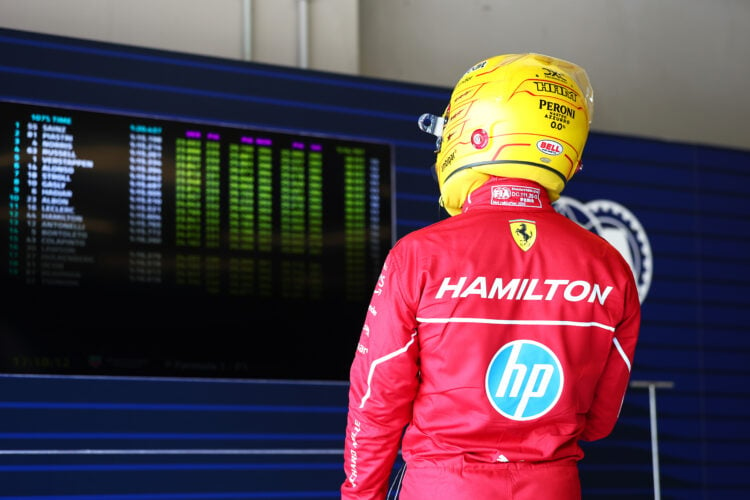Lewis Hamilton has already driven several different generations of F1 cars. He experienced his first major rule change just two years into his career.
The 2009 overhaul perhaps came at the worst time for Hamilton, who had just won the 2008 title with McLaren. Slick tyres were reintroduced, the profile of the wings were changed and the bodywork was simplified.
Martin Whitmarsh’s team failed to adjust, and Hamilton slipped to fifth in the world championship. These cars would continue to evolve until 2014, with Red Bull emerging as the dominant force after Brawn’s initial upset.
| YEAR | CHANGE | WDC | WCC |
| 2006 | V6 to V8 | Fernando Alonso | Renault |
| 2009 | Simplified aero | Jenson Button | Brawn |
| 2014 | V6 hybrids | Lewis Hamilton | Mercedes |
| 2022 | Ground-effect | Max Verstappen | Red Bull |
But it was Mercedes who stole a march when the sport introduced V6 turbo/hybrids. That advantage persisted in 2017 when the cars and tyres were widened, making them significantly faster.
It wasn’t until the advent of the current ground-effect rules in 2022 that Mercedes were toppled in the constructors’ championship. This era has belonged to Red Bull, though McLaren have made a late surge.
Now teams are beginning to turn their attention to the 2026 rules revolution. The biggest changes for 12 years, they could certainly shake up the running order.
Lewis Hamilton concerned that Formula 1 cars are getting slower next year
Next year, the cars will be lighter and smaller. As the sport pursues net-zero emissions by 2030, it will mandate sustainable fuels and rely much more heavily on battery power.
Teams will also use active aerodynamics, enabling them to open the front and rear wings on the straights to reduce drag.
Hamilton has struggled in the ground-effect cars, certainly relative to his own standards. He endured his first winless season ever in 2022, followed by another in 2023, and slipped out of the top six in the championship for the first time last year.
But speaking to Sky Sports, he didn’t sound particularly enthusiastic about the upcoming changes. The cars are expected to be five or more seconds slower, which he sees as a step in the wrong direction
“What is in the Formula 1 you’d like to race in the future?” he was asked.
Hamilton replied: “I don’t think it’s going in the right direction, personally. But maybe I’ll be surprised next year. Maybe we’ll arrive and the cars are really nice.
“With the direction we’re going, we’re getting slower. The cars are getting heavier – next year they are getting lighter, but this generation of car is the heaviest that I’ve raced in.
“For me, I miss the sound. When you hear a V12, a Ferrari, it’s… wow. It’s the passion.
“Whilst it’s a good direction to go in for the world in terms of sustainability – I think it’s been positive in that respect – you can’t get away from the fact that the sound is not the same as when you watch Michael Schumacher’s car from 2003 come past.”
Lewis Hamilton and Max Verstappen surprisingly agree on potential F1 rule change
Hamilton has already been on record to express his approval for the return of howling V10 engines. FIA president Mohammed Ben Sulayem has been pushing the initiative.
Max Verstappen agrees with Hamilton, previously his bitter rival, on the V10 proposals. However, F1 teams have agreed to stick with V6s until 2030 at the earliest.
As for next year, Hamilton’s old team Mercedes are the favourites. Their engine department remains the envy of the F1 grid.
That could be problematic for the 40-year-old, who has joined Ferrari to win an eighth world championship and is likely in the final years of his career.


